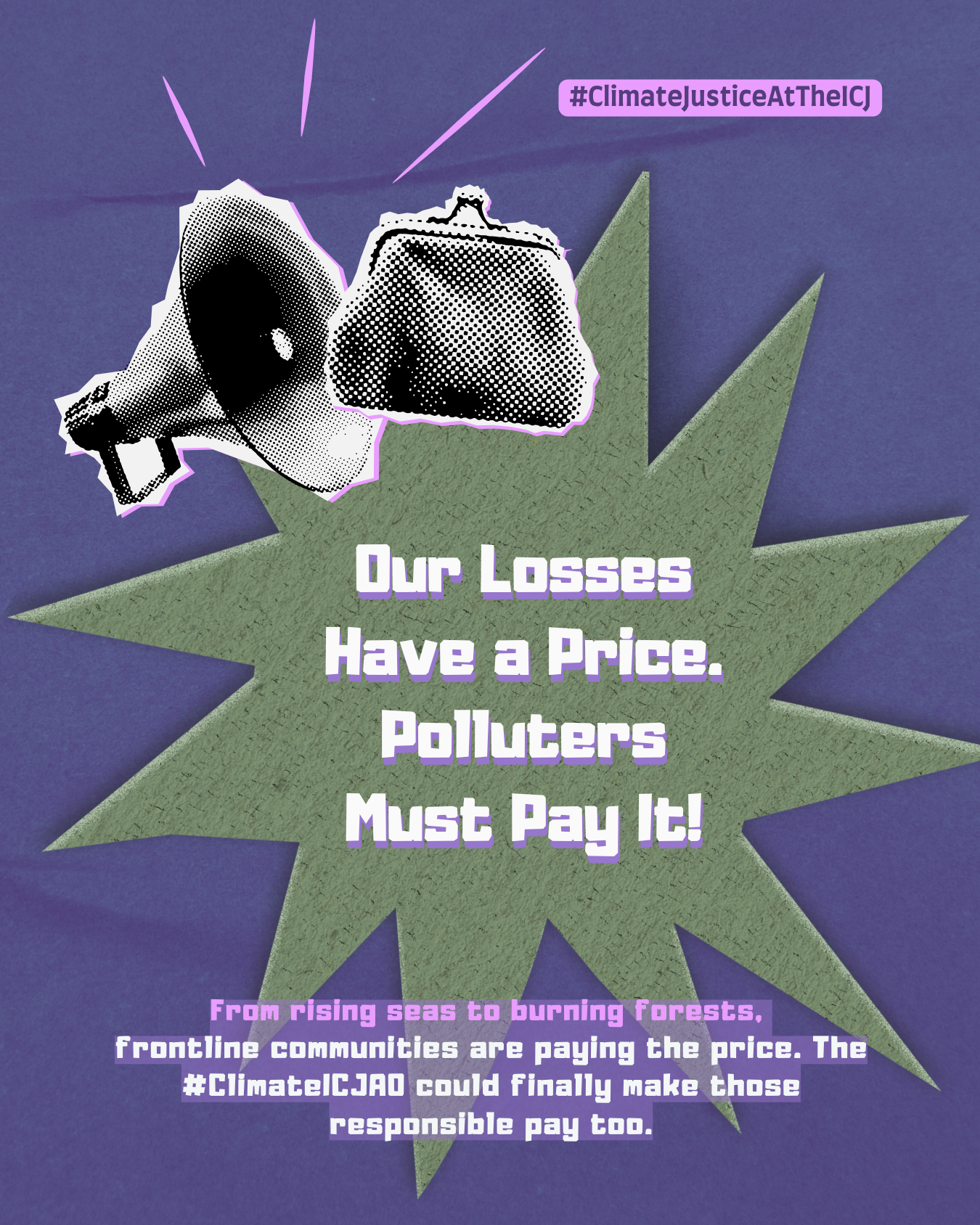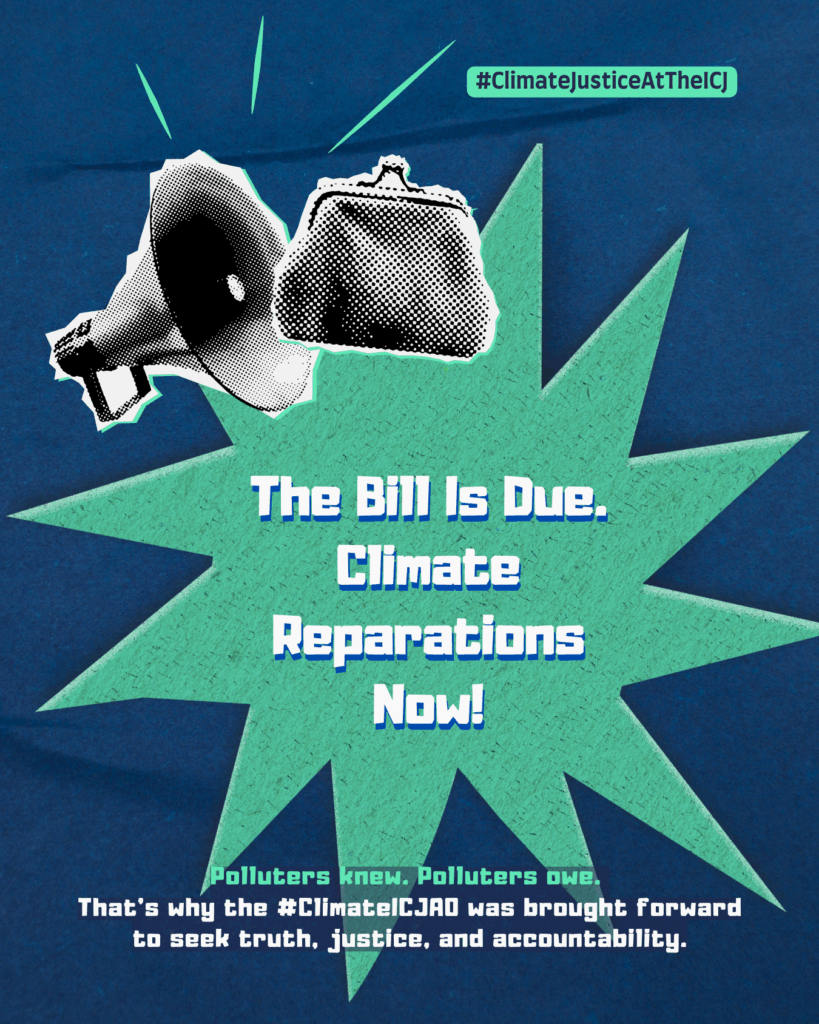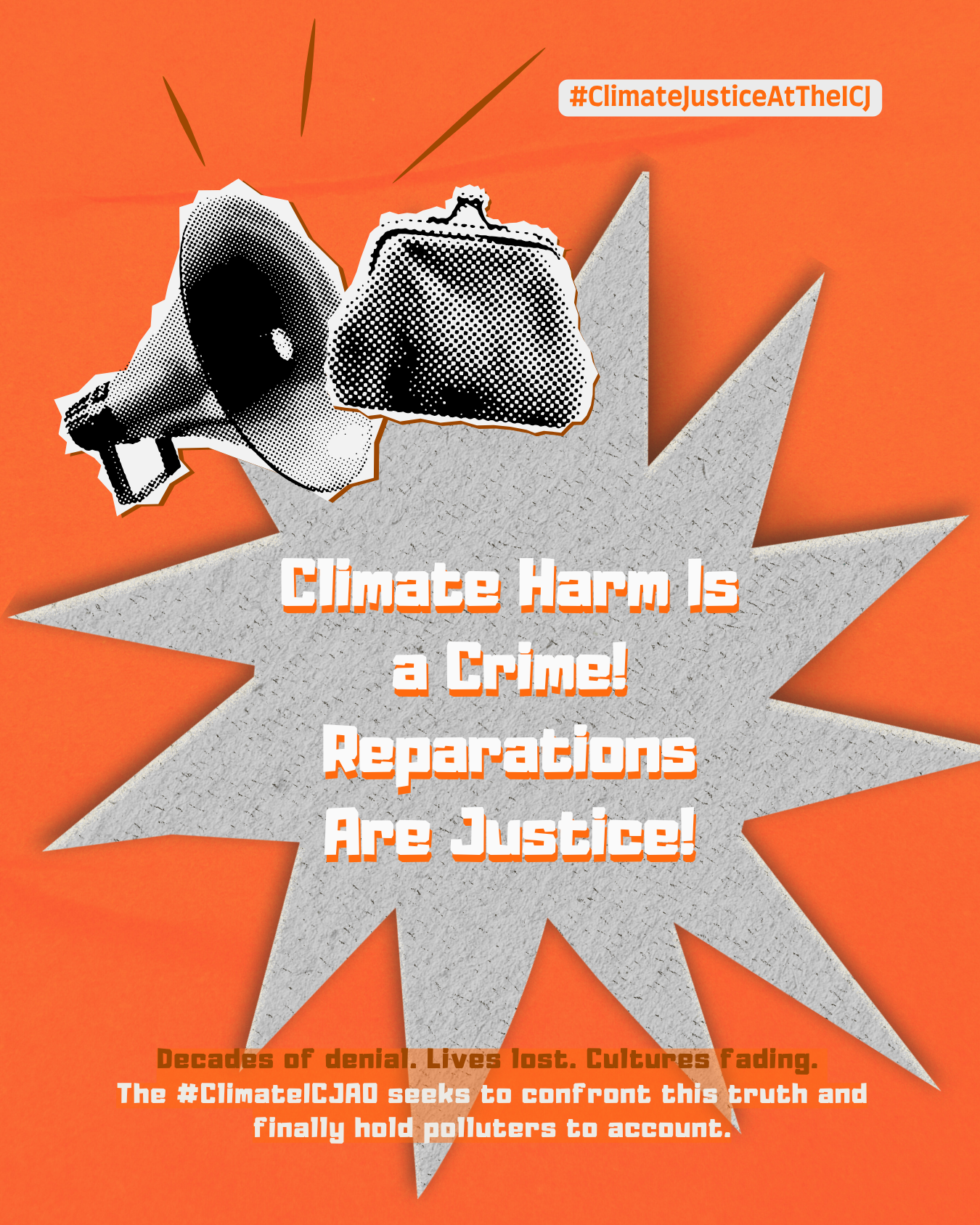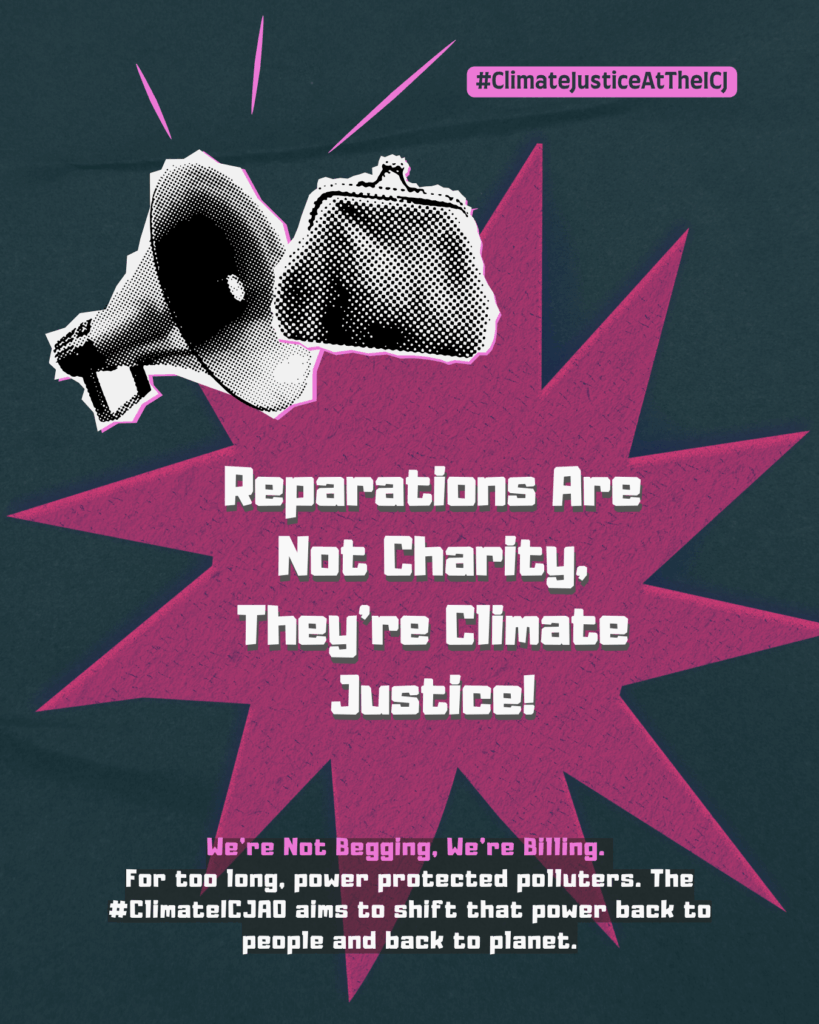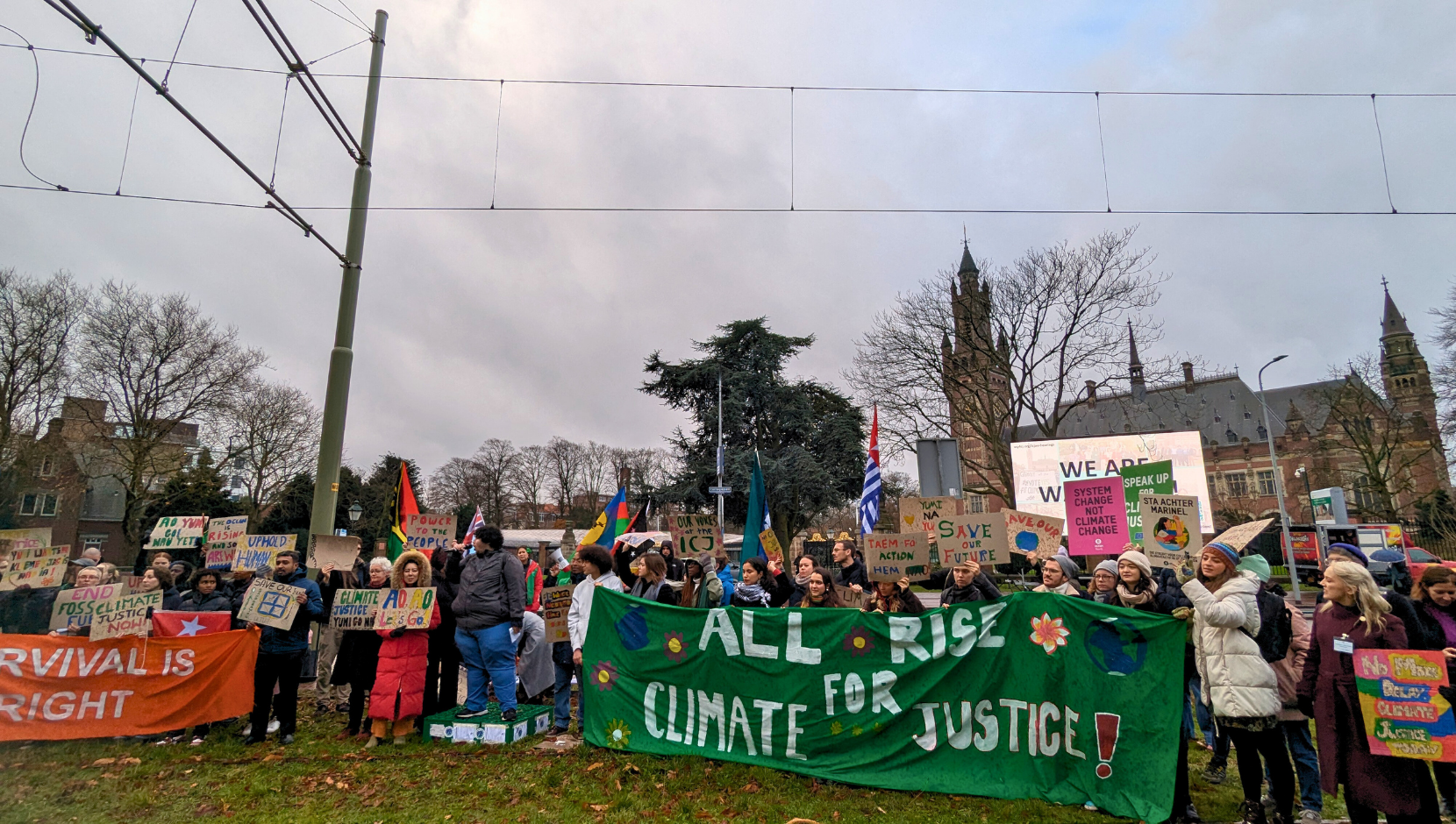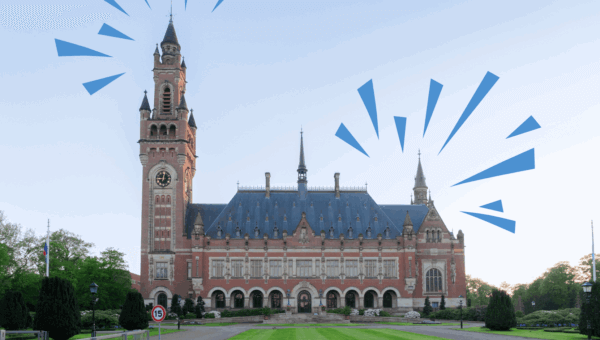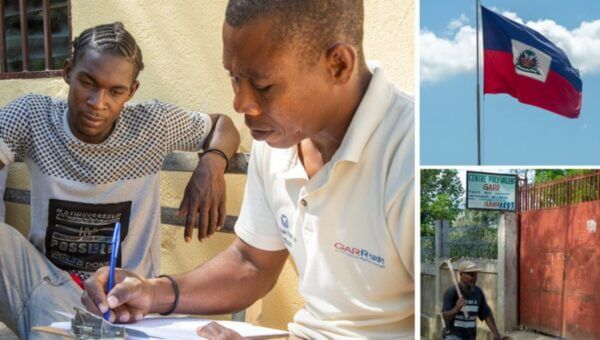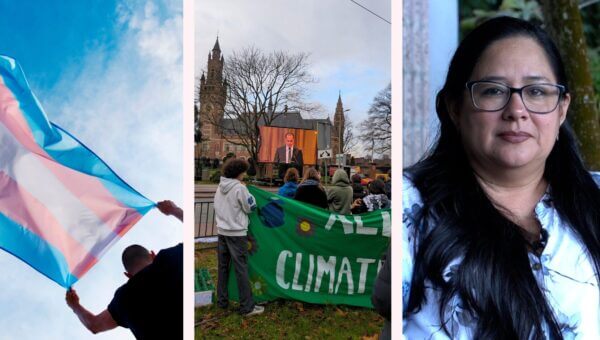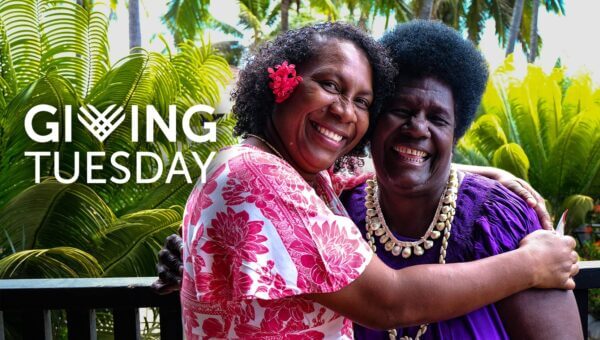July 24, 2025 Update: World’s highest court issues clear ruling: Countries must protect the climate and compensate for harms to people and planet
Click here to learn more about the ICJ’s Advisory Opinion Process
Pacific Island Students Fighting Climate Change (PISFCC) brought the world’s biggest problem to the world’s highest court. The outcome could have a significant impact on frontline communities.
PISFCC, a UUSC partner, began a campaign in 2019 to get the International Court of Justice (ICJ) to issue an opinion on climate change and human rights. The organizers succeeded, and in December 2024, the court held oral hearings. PISFCC and fellow frontline organizations held a simultaneous people’s assembly to document testimony from activists directly impacted by the climate crisis.
The ICJ will issue their advisory opinion in the next two weeks. This ruling could provide legal guidance stating that polluters are responsible for paying climate reparations. Powerful states and corporations have continued to profit from their exploitation of the environment. Countries contributing the least to the climate crisis are bearing the brunt of the impacts. The ICJ’s Advisory Opinion could insist that these entities compensate the communities they’ve damaged. Frontline nations could use reparations to invest in cleaner, fairer, and more sustainable economies.
While awaiting the ICJ ruling, the Inter-American Court on Human Rights (IACtHR) issued their own advisory opinion on the climate emergency. On July 3, the IACtHR affirmed the dire state of the climate crisis and provided an analysis of state obligations. The Court acknowledged that international law broadly prohibits actions that threaten interdependent ecosystems. Given this standard, the Court asserted that access to a healthy climate is a fundamental human right. Additionally, the Court found that Nature and its components are rights-holders. This landmark ruling protects the collective interests of people and the earth itself.
The IACtHR made bold recommendations for climate reparations. They argued that existing refugee and human rights frameworks should be applied to climate-forced displacement. This milestone ruling sets essential transnational standards of state accountability.
It’s not yet known how or if the IACtHR advisory opinion will impact the International Court of Justice’s ruling. Organizers hope for a similarly bold and definitive opinion.
Defining international accountability in the context of the climate crisis is essential for grassroots advocacy. With this ruling, international courts clarify states’ legal duty to protect people and the planet. Organizers and advocates can leverage these rulings to fight for state accountability, climate reparations, and protections. As PISFCC states, “This is more than law: it’s a fight for survival, dignity, and the future of our planet.”
Show your solidarity by sharing the following graphics from PISFCC with the hashtags #ClimateJusticeAtTheICJ and #ClimateICJAO. Use your digital presence to let the International Court of Justice know that the world is watching.
